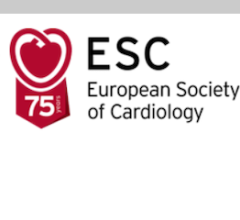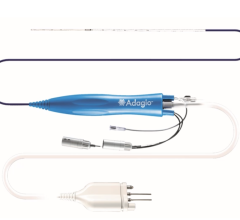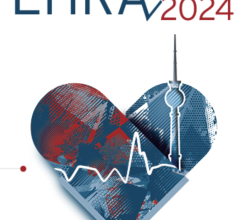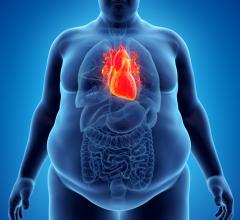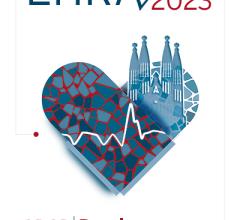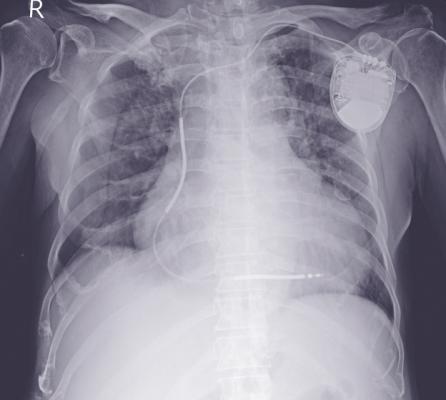
Getty Images
August 28, 2023 — Is the routine implantation of an implantable cardioverter defibrillator (ICD) in myocardial infarction survivors with heart failure still an adequate therapy for prevention of sudden cardiac death? The PROFID EHRA trial is set to answer this question in a large, multicenter, EU-funded study set to enroll the first patient this summer. The consortium of partners and colleagues involved in the trial, including the European Heart Rhythm Association (EHRA) of the European Society of Cardiology (ESC), will meet during ESC Congress 2023 to discuss the start of the study.
Myocardial infarction survivors with reduced left ventricular function are at risk of life-threatening ventricular arrhythmias. ICDs detect and terminate ventricular tachyarrhythmias, thereby preventing sudden cardiac death. Trials conducted in the 1990s and early 2000s showed that ICDs reduced mortality in patients with severely reduced left ventricular ejection fraction (LVEF) after myocardial infarction compared with medical therapy alone.1,2 Mainly based on these two trials, ESC Guidelines recommend ICD therapy to prevent sudden cardiac death in patients with an ejection fraction of 35% or less.3
In the last two decades, the medical management of patients with severely reduced LVEF has improved dramatically. Novel drugs were introduced that lower the risk of sudden cardiac death.4-7 As a result, rates of sudden cardiac death in patients with heart failure have declined8 and the delivery of life-saving ICD shocks has reduced.9 Therefore, the risk-benefit ratio of routine prophylactic defibrillator implantation in these patients warrants reassessment.
The PROFID EHRA trial will be the first randomized adequately powered assessment of the potential benefit of ICD therapy in myocardial infarction survivors with reduced LVEF under contemporary optimal medical therapy. International chief investigator of the PROFID EHRA trial Dr. Nikolaos Dagres of the Heart Center Leipzig, Germany said: “A novel randomized assessment of the ICD benefit in these patients is urgently needed in order to close a significant evidence gap for a major aspect of clinical routine.”
The hypothesis of the trial is that in post-myocardial infarction patients with symptomatic heart failure and reduced LVEF (35% or below), optimal medical therapy without ICD implantation is not inferior to optimal medical therapy with ICD implantation with respect to all-cause death within around 2.5 years of follow up. The potential of novel methods for personalizing risk prediction of sudden cardiac death will also be explored in two substudies on cardiac magnetic resonance imaging and genomics, which will be conducted in a subset of study sites, and in an artificial intelligence-based analysis of the 12-lead electrocardiograms (ECGs) collected at baseline and during follow up.
PROFID EHRA will enroll approximately 3,595 patients from 180 clinical sites in 13 countries. Participants will be randomly allocated in a 1:1 ratio to 1) optimal medical therapy alone or 2) optimal medical therapy with ICD implantation. Primary outcome is all-cause mortality. Secondary outcomes include death from cardiovascular causes, sudden cardiac death, hospital readmissions for cardiovascular causes, length of stay in hospital and quality of life. A cost effectiveness analysis will also be conducted. The study will last around 49 months, with results expected in early 2027.
International chief investigator Professor Gerhard Hindricks of the German Heart Center Charité Berlin, Germany said: “The start of the PROFID EHRA trial is a huge milestone as it will provide solid randomised evidence on the role of ICDs for preventing sudden cardiac death after myocardial infarction in the setting of contemporary medical treatment. The trial results are anticipated to change the prevention of sudden cardiac death in clinical practice. We are delighted about the strong support of EHRA for the trial that is highlighted by the new acronym ’PROFID EHRA’, and the participation of EHRA president Professor Jose Luis Merino on the study’s Steering Committee.”
For more information: www.escardio.org
Find more ESC23 conference coverage here
References:
- Moss AJ, Zareba W, Hall WJ, et al. Prophylactic implantation of a defibrillator in patients with myocardial infarction and reduced ejection fraction. N Engl J Med. 2002;346:877-883.
- Bardy GH, Lee KL, Mark DB, et al. Amiodarone or an implantable cardioverter-defibrillator for congestive heart failure. N Engl J Med. 2005;352:225-237.
- Zeppenfeld K, Tfelt-Hansen J, de Riva M, et al. 2022 ESC Guidelines for the management of patients with ventricular arrhythmias and the prevention of sudden cardiac death. Eur Heart J. 2022;43:3997-4126.
- Desai AS, McMurray JJV, Packer M, et al. Effect of the angiotensin-receptor-neprilysin inhibitor LCZ696 compared with enalapril on mode of death in heart failure patients. Eur Heart J. 2015;36:1990-1997.
- Pitt B, Gheorghiade M, Zannad F, et al. Evaluation of eplerenone in the subgroup of EPHESUS pa-tients with baseline left ventricular ejection fraction ≤30%. Eur J Heart Fail. 2006;8:295-301.
- McMurray JJV, Solomon SD, Inzucchi SE, et al. Dapagliflozin in patients with heart failure and reduced ejection fraction. N Engl J Med. 2019;381:1995-2008.
- Packer M, Anker SD, Butler J, et al. Cardiovascular and renal outcomes with empagliflozin in heart failure. N Engl J Med. 2020;383:1413-1424.
- Shen L, Jhund PS, Petrie MC, et al. Declining risk of sudden death in heart failure. N Engl J Med. 2017;377:41-51.
- Sabbag A, Suleiman M, Laish-Farkash A, et al. Contemporary rates of appropriate shock therapy in patients who receive implantable device therapy in a real-world setting: From the Israeli ICD Registry. Heart Rhythm. 2015;12:2426-2433.


 August 29, 2025
August 29, 2025 
